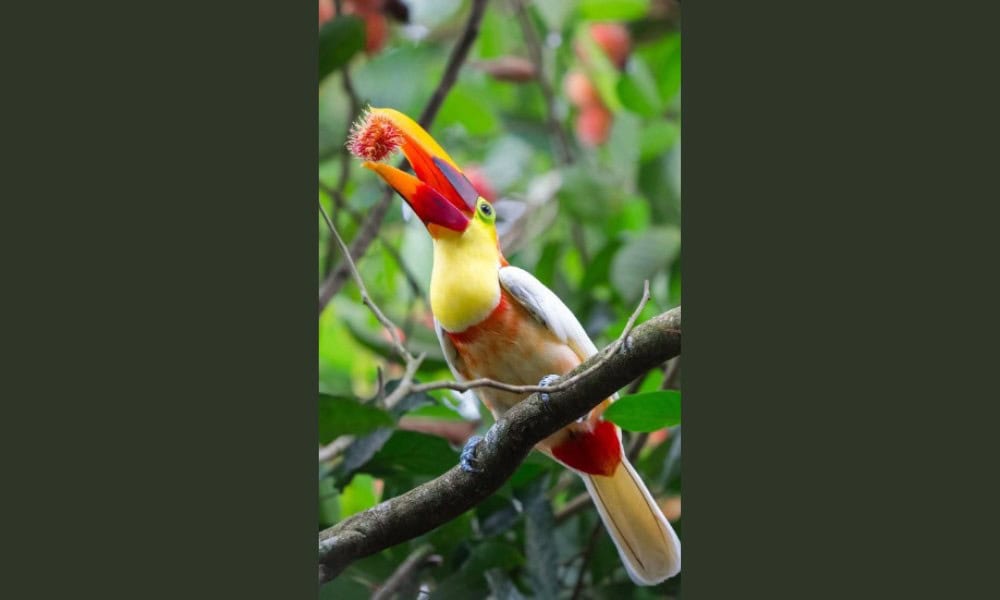A Spanish photographer named Kike Arnaiz recently spotted a rare leucistic yellow-throated toucan in Costa Rica, calling it a one-of-a-kind find that left him amazed. The bird, known locally as “Tuky,” shows white plumage due to leucism, a genetic trait that reduces pigmentation in feathers but keeps eyes, beak, and other features normal.
Arnaiz, who focuses on wildlife and travel shots, posted about the encounter on social media. “In Costa Rica, there is a toucan that is absolutely unique,” he wrote. At first, people might mistake it for an albino or a new species, but it’s a chestnut-billed toucan with this condition. Unlike albinism, leucism does not make the animal sensitive to sunlight.
He captured the toucan peeling and eating a rambutan fruit, then spitting out the seed, in a video that highlights its natural behavior. Arnaiz stressed that his images come from real fieldwork, not generated tools. The bird lives among a group of standard-colored toucans but stands out with its pale appearance.
This toucan first gained attention in 2019 when Costa Rican photographer Luis Solano Pochet photographed it in Guápiles. Photos spread widely again in February 2024, drawing interest from bird watchers and nature fans. Sightings happen occasionally, but close views like Arnaiz’s remain rare.
A friend tipped him off to the bird’s location, though earlier attempts stayed at a distance. This time, they followed calls and checked fruit trees, and luck brought the toucan right to them. “We saw it fly to our exact spot,” Arnaiz said.
The yellow-throated toucan, or Ramphastos ambiguus, thrives in Costa Rica’s forests. Leucistic versions pop up seldom, making each encounter special. Social media users have shared similar images, describing it as a “unicorn of the tropics.”
Arnaiz’s posts have reignited excitement, with comments praising Costa Rica’s biodiversity. He lives part-time in our country and often documents its wildlife. His YouTube channel features tours of local spots, including his home where birds visit.
For those interested in seeing rare birds, Costa Rica offers spots like Limón province. Guides and tours help locate them without disturbing habitats. Keep an eye on fruit trees, as toucans favor them for feeding.
This sighting reminds people of nature’s surprises. If you plan a trip, check local photography groups for tips on ethical viewing. Arnaiz’s experience shows patience pays off in spotting these gems.






